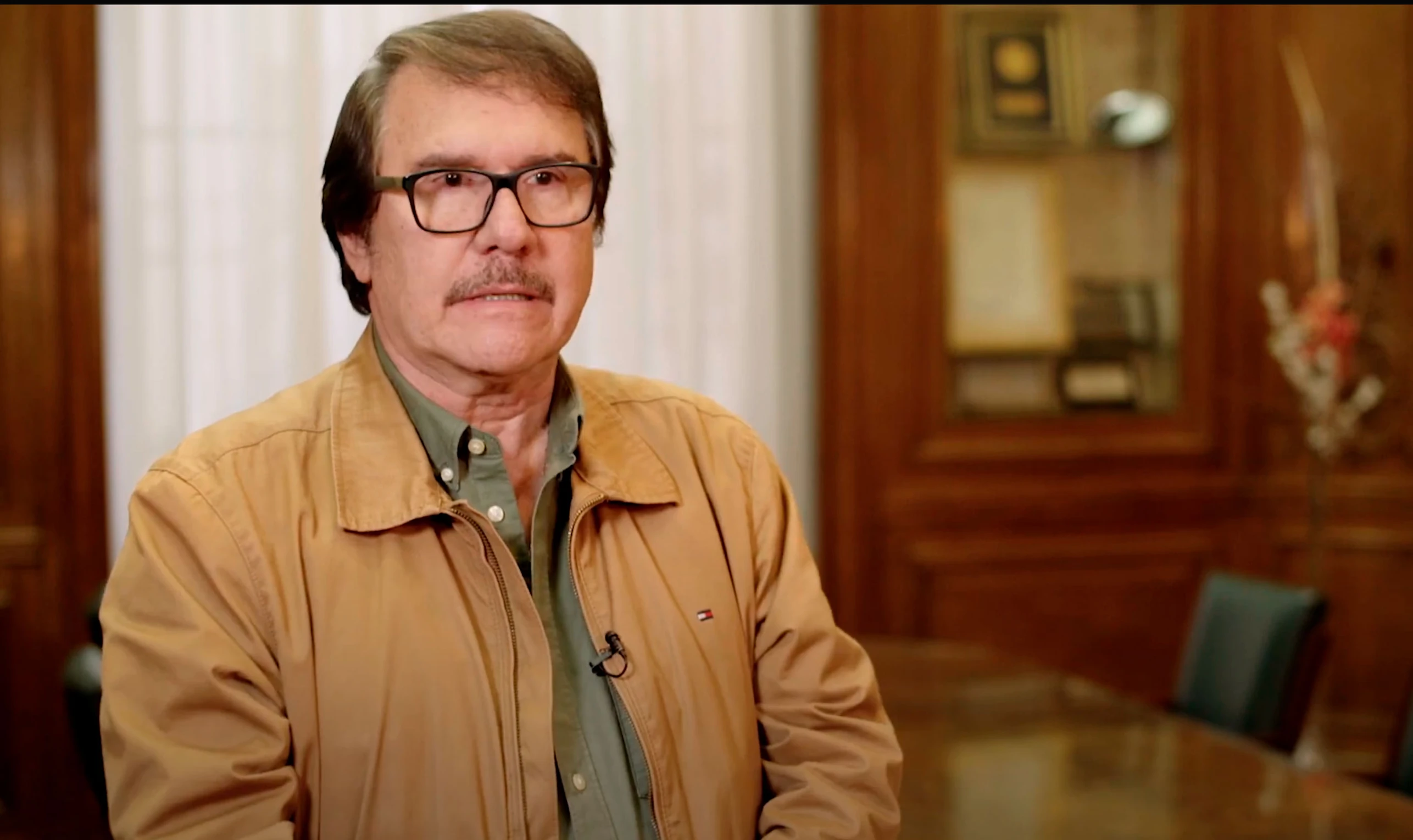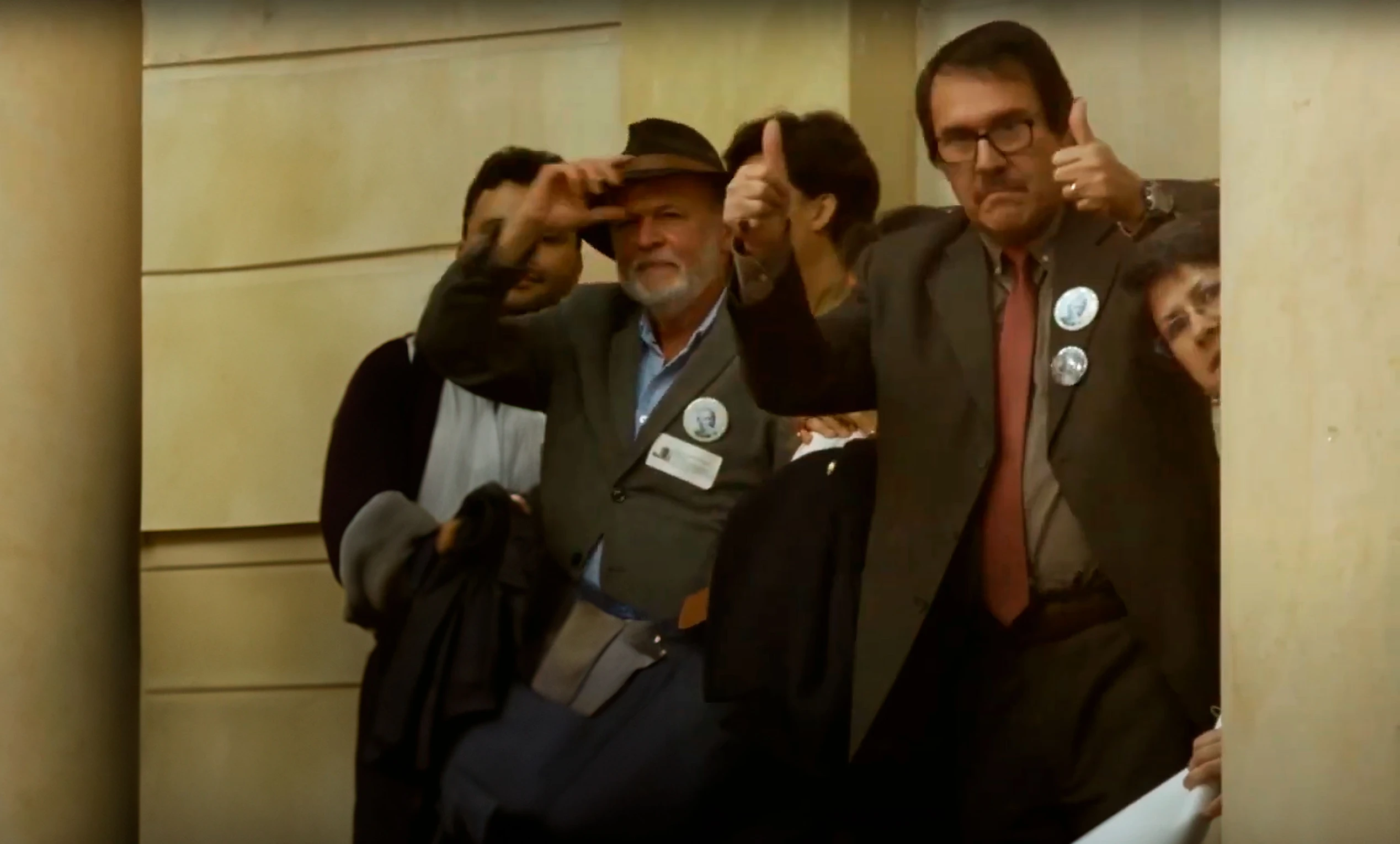Pepe Sánchez Law: 8 Years of a Hard-Won Right That Transformed the Lives of Audiovisual Creators in Colombia
- AVACI

- 9 जून 2025
- 3 मिनट पठन
अपडेट करने की तारीख: 21 जून 2025

On June 9, 2017, the Congress of the Republic of Colombia enacted a law that would forever change the destiny of the country’s audiovisual creators. Law 1835, known from its inception as the Pepe Sánchez Law, in honor of the legendary Colombian director, screenwriter, and actor, finally recognized a fundamental right: the right to receive fair remuneration for the public communication of their works.
Until then, Colombian directors and screenwriters—unlike their European counterparts—did not receive a single peso when their works were broadcast on television, screened in cinemas, or distributed on digital platforms. Their work was invisible in the value chain, even though it was the artistic and creative engine of the industry.
The Pepe Sánchez Law corrected that historical injustice.
The right to be recognized (and remunerated)
The law guarantees audiovisual authors—specifically directors and screenwriters—the right to receive payment when their works are publicly used for commercial purposes. This non-waivable remuneration must be managed collectively by entities created for this purpose such as DASC (Directores Audiovisuales Sociedad Colombiana de Gestión) and REDES (Red Colombiana de Escritores Audiovisuales), who began collecting and distributing rights in 2019.

“The law didn’t fall from the sky,” says Alexandra Cardona Restrepo, screenwriter and president of REDES, in an interview with AV Creators News. “It is the result of the effort, solidarity, and stubbornness of a group of authors who refused to accept injustice as their fate.”
Before its enactment, Colombia could not claim royalties generated by its works abroad. According to the International Confederation of Societies of Authors and Composers (CISAC), the audiovisual sector worldwide collected 499 million euros from public communication rights in 2014 alone. Without a law supporting them, Colombian creators were excluded from the global collective management system.
Today, thanks to the Pepe Sánchez Law, Colombia has signed reciprocity agreements with countries that have similar legislation: Spain, France, Argentina, Chile, Mexico, Italy, Belgium, the Netherlands, Panama, and Poland, among others. This allows them to receive payments even for broadcasts abroad.

The change in numbers
Since the system’s implementation, DASC has distributed more than 7 billion Colombian pesos in royalties to its members. “Today we are a well-formed, very united entity that has distributed a lot of money to our partners and continues growing every year,” said Mario Mitrotti, director and founder of DASC—who passed away in May 2024—in one of his last interviews with AV Creators News.
REDES, for its part, has surpassed 500 affiliated authors and maintains a system of periodic payments that has become a stable and dignified source of income for screenwriters who were excluded from the industry’s economic distribution for years.
The transformation of the audiovisual ecosystem But the law brought not only resources: it brought legitimacy, visibility, and organization. “This law has changed the lives of hundreds of Colombian directors,” affirms Teresa Saldarriaga, director and current president of DASC. “Today we exist institutionally, we have a voice before the State, platforms, and society,” she emphasized in her conversation with AV Creators News.
This institutional strengthening allowed, among other things, the recent inauguration of the Casa del Director, a headquarters acquired and renovated with Social Welfare funds, functioning as a cultural center and meeting place for the audiovisual community.

Both organizations—DASC and REDES—also promote welfare programs, professional training, and legal actions to protect their members against new challenges such as abusive contracts or the use of artificial intelligence replacing original voices and scripts.
A collective achievement
The law was introduced in Congress by legislators Clara Rojas and Juan Manuel Galán, but behind it was a broad movement of creators. Key figures such as Mario Mitrotti, Alexandra Cardona Restrepo, Teresa Saldarriaga, Sergio Cabrera (director), Rodrigo Triana (director), and Pepe Sánchez himself—who left an audiovisual message that moved congress members before his passing—participated in parliamentary debates and meetings with authorities.
The struggle was not easy. As Mitrotti rightly put it, “making a law as artists is like crossing the Sahara Desert on foot.” They had to learn legal language, mobilize politically, and build consensus in a scattered industry. But today the result is an exemplary model that inspires other countries in the region.
Looking ahead
Eight years after its enactment, the Pepe Sánchez Law stands as a structural and irreversible achievement. It represents the full incorporation of creators into the audiovisual economic ecosystem, but also a symbolic act of justice.
“For the first time, Colombian law recognizes that audiovisual creators and writers are authors in their own right, as important as literary writers or musicians,” emphasized congresswoman Rojas during her parliamentary defense.
In a country where 3% of GDP corresponds to cultural industries, continuing to strengthen these types of legal frameworks is essential to consolidate a sector that generates employment, identity, and symbolic wealth—and to ensure creative talent never works again in silence or in the shadows.















टिप्पणियां